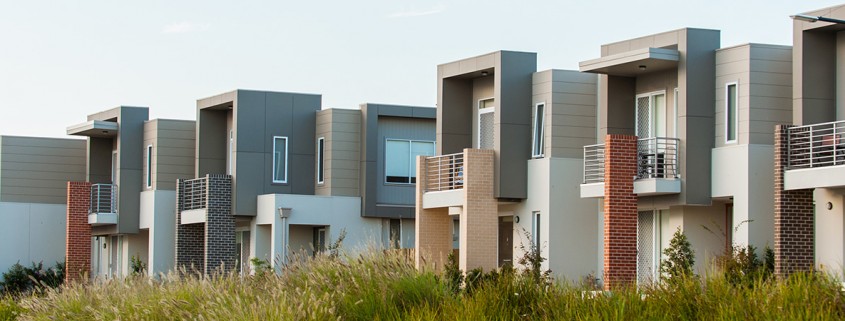What does the Turnbull Government mean for property?
On September 15 Malcolm Turnbull became Australia’s 29th Prime Minister – and its fifth in as many years – after winning a leadership challenge against Tony Abbott.
While the new PM has enjoyed a lift in the polls following the win, many across the country are waiting to see what will happen in the policy space.
Key areas affecting the property industry are tax reform and housing affordability. So what does a change of government mean for the property industry?
What are some key changes in the new government?
With the appointment of Malcolm Turnbull as PM comes a new ministry. Scott Morrison is Treasurer and Jamie Briggs becomes Minister for Cities and the Built Environment – a newly-created portfolio.
“It’s a very strong and capable ministry that the PM has put together,” Housing Industry Association Chief Executive of Industry Policy and Media Graham Wolfe says.
“Arthur Sinodinos and some other people into the senior ministry shows the PM wants to focus on the domestic economy.”
A tale of two suburbs: From Point Piper to The Lodge for Malcolm Turnbull

What do the changes mean for property?
It’s no secret that housing plays a major role in both the Australian economy and the lives of all Australians.
Rising prices, particularly in the Sydney and Melbourne markets, have put the question of housing affordability at the forefront of national debate.
Q&A: Is Australia in a housing bubble?
Ken Morrison, Chief Executive of the Property Council of Australia, says there will likely be a greater focus on urban areas, particularly with the appointment of Briggs.
“Malcolm Turnbull comes to the role as perhaps the most urbanist Prime Minister ever,” he says.
“He has deep understanding of the importance of cities in the economy and people’s lives.
“We have now got a PM that is looking at urban demands that perhaps we didn’t have before.”
Malcolm Turnbull has deep understanding of the importance of cities.
Morrison says more than 80% of Australia’s economy in GDP terms comes from cities and analysis by Infrastructure Australia shows that three quarters of Australia’s population growth over the next two decades will be in our four major cities.
“If Sydney, Melbourne, Brisbane and Perth don’t perform … we don’t achieve our economic objectives.”

What will be the key areas of focus?
Morrison says the debate that will have the biggest impact on property is the issue of tax reform.
“The tax reform debate is one people who are focused on the property market should follow closely.”
Figures show that 9% of Australia’s total tax take comes from real estate, compared with the OECD average of just 5%, he says.
“What we are talking about is national tax reform and focusing on changes that can grow the economy,” Morrison says.
“We need to start to do something about the taxes that everyone agrees are the worst.”

He names stamp duty as one of the worst of Australia’s national taxes, saying it disrupts the decision making of millions of Australians who put off selling or moving because of the tax.
“That locks them into housing that is not necessarily appropriate and a whole bunch of economic activity doesn’t happen.
“The challenge for tax reform is to find a pathway to phase out stamp duty.”
Q&A: Should stamp duty be axed?
The challenge for tax reform is to find a pathway to phase out stamp duty.
The other big issue is in infrastructure, an area where both Wolfe and Morrison say there needs to be significant investment.
“We need to ensure significant investment in infrastructure to support housing, … and the provision of transport to provide for those people,” Wolfe says.
Morrison agrees and says the PM’s move to scrap a ban on federal government investment in public transport infrastructure is a welcome one.
What about housing affordability?
Wolfe says the new treasurer brings with him a solid understanding of the property landscape and affordability issues. Prior to being appointed as Treasurer, Scott Morrison held the position of Minister for Social Services.
“Scott Morrison is on the record as having a certain view on house prices and affordability and what impacts on that. He realises that one to two years of record building will not keep up with the level of undersupply we have seen,” Wolfe says.
He says without continued building there will be increased pressure on rental prices and availability and on affordability more generally.
“We would have liked to see a minister for housing, but we know they can traditionally spend a lot of time dealing with social issues,” Wolfe says.
“I think the inclusion of Arthur Sinodinos as Cabinet Secretary is key in that space.”
We would have liked to see a minister for housing.
Q&A: Is negative gearing good or bad?

Ken Morrison agrees, saying a key part of the affordability debate centres on housing supply.
“We have been fortunate over the past year the housing construction levels have risen,” he says.
“We need construction levels to stay high to eat into big supply issue in cities, especially in Sydney.
“It’s high school economics – if you have demand without supply then prices are only going to go one way.”



Leave a Reply
Want to join the discussion?Feel free to contribute!